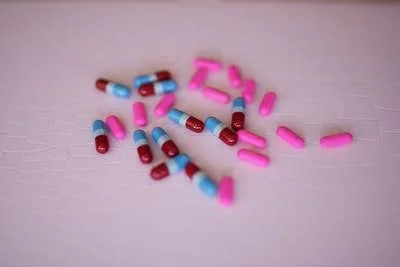ADHD, or Attention-Deficit/Hyperactivity Disorder, affects millions of children and adults worldwide. Treatment approaches have centered around prescription medications designed to improve focus, reduce impulsivity, and improve functionality.
These medications can manage symptoms, but they fall short when addressing the complexities of ADHD as a whole. For individuals seeking the most effective treatment, recognize that a comprehensive approach that includes therapy, lifestyle adjustments, and support systems will help you achieve lasting improvements.
The Limitations of Medication in ADHD Treatment
Many individuals turn to medication as a primary solution for managing ADHD symptoms. For some, these medications can result in temporary relief. The impact of these medications varies widely among individuals; what works for one may not work for another. Medications have side effects, which can include appetite loss, sleep disturbances, and increased anxiety.
The variance in response can result in a lengthy trial-and-error process for patients. With effective medication, underlying issues related to behavioral patterns or emotional challenges go unaddressed. Relying solely on prescriptions can leave the patient without the necessary coping strategies and tools that can lead to sustainable improvement in their quality of life.
Finding the Right Professionals
ADHD manifests differently in everyone, so they need to have access to professionals who understand the intricacies of the disorder. Evaluation by a trained psychologist, psychiatrist, or neuropsychologist provides a clear diagnosis and outlines suitable treatment pathways. Comprehensive assessments can tailor both medication and behavioral therapies to fit specific needs. Platforms like Kantoko can connect individuals with qualified specialists who take a holistic approach to ADHD management. The right professional will collaborate with other caregivers and educators. This collaborative effort allows for an integrated treatment plan combining medical, educational, and behavioral strategies for optimal outcomes.
The Importance of Family Involvement
When family members understand ADHD and its implications, they become allies in the treatment process. Involving family members through education and counseling can create a more supportive environment for individuals with ADHD. Family therapy sessions can improve communication patterns and address any emotional struggles that arise from living with ADHD.
Learning effective ways to provide support can empower family members to engage in constructive practices rather than inadvertently reinforcing negative behaviors. Family involvement can develop strategies collaboratively so that everyone is on the same page regarding treatment goals. Through ongoing communication and support, families can cultivate an environment that encourages resilience and positively impacts the outcome of the ADHD treatment.
Nutritional Influences on ADHD
Growing evidence suggests a strong link between diet and the symptoms of ADHD. Certain dietary factors can influence behavior and cognitive functioning. Research is still ongoing, and some studies indicate that a diet rich in omega-3 fatty acids, vitamins, and minerals may support brain health and mitigate symptoms associated with ADHD. High sugar intake and processed foods can exacerbate impulsive and inattentive behaviors.
For families dealing with ADHD, consulting with a nutritionist can provide tailored dietary strategies that align with the individual’s specific needs. These dietary modifications can have a profound effect on mood and concentration levels, reinforcing the necessity of an integrative approach to treatment.
There’s plenty more where that came from—browse our other helpful content!
Social Skills Training
Social skills training is a necessary component that complements medication in treating ADHD. Many individuals with ADHD face challenges in social interactions, leading to feelings of isolation or frustration. This training focuses on teaching practical skills necessary for effective communication and conflict resolution.
Participants learn how to recognize social cues, engage in conversations, and develop empathy for others. Group settings for training can provide valuable opportunities for practice in real time, which promotes a greater understanding of social dynamics. With consistent social skills training, individuals can build confidence and improve their self-esteem.
Exploring Support Networks
A solid support network treats ADHD beyond medication. Support networks may include therapists, educators, family members, and even peer groups, all of whom can provide encouragement and accountability. Individuals with ADHD can benefit from connecting with others who understand their experiences and reduce feelings of isolation. Support groups offer a space where strategies can be shared and challenges can be discussed openly.
Educational resources and workshops serve to empower individuals and their families by providing tools to navigate their ADHD journeys successfully. Empowerment through knowledge and community support can strengthen a person’s ability to manage ADHD symptoms effectively.
Regardless of the treatments pursued, ADHD is a multifaceted condition that requires comprehensive management strategies. Medication alone does not target the various elements of ADHD.
Integrating behavioral therapy, family involvement, nutritional awareness, social skills training, and robust support networks can create a more successful treatment pathway. Emphasizing the importance of finding an individualized approach guarantees that individuals with ADHD navigate daily challenges and thrive in their endeavors.
Loved this post? You’ll find even more just like it on our blog!







